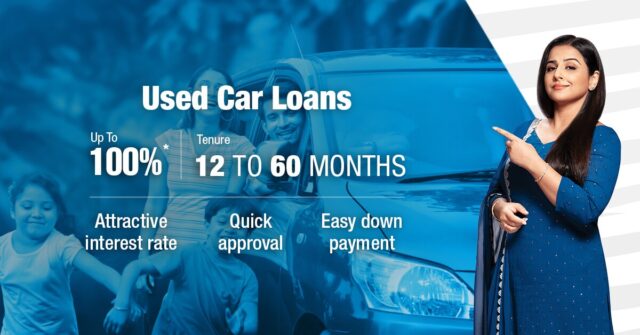When you are looking to buy a second-hand car, there are several things that you need to keep in mind before you make the purchase. The first thing is that not all roads lead to the same destination and this applies when buying a used car as well. There is no one size fits all solution for getting a new or used vehicle so it’s important to research your options thoroughly before making any decisions. Buying a car is an investment, and you need to ensure that it will pay off, especially if you are taking a second hand car loan.
Here are 6 things to keep in mind before you buy a second-hand car on loan.
- Do your research: Know how much the model of car costs new so that you can get a good idea for what it should cost used. Be sure to factor in the depreciation of the vehicle as well as any wear and tear if relevant. Also take into account hidden fees such as insurance, registration and taxes when calculating the total price tag of your purchase. Visit the websites of multiple lenders, check their interest rates, calculate your EMI using the used-car loan EMI calculator and make an informed decision. Note that not all auto loan lenders offer loans for used cars, so dive deep and pick your lender carefully.
- Consider the loan terms: The most important thing to consider when taking a second-hand car loan is the monthly payment and term of the loan. You want to ensure you can comfortably make your payments over a longer period, especially if you’re not sure how long you’ll keep the vehicle. Remember it is always easier to refinance than take out another loan. Read the fine print, terms, conditions of repayment, penalties, processing charges and each loan document in detail.
- Ensure the car is covered by a warranty: Covering your auto loan with an extended warranty gives you peace of mind. The cost of repair and maintenance are much more expensive on a second-hand vehicle, so protect yourself with a wide range warranty to cover any possible problem that may surface in the future.
- Check on maintenance costs: A big part of owning any type of car involves upkeep, so don’t forget to factor in routine maintenance costs such as oil changes, tire rotations and brake jobs into your budget before making a final decision. If possible, check with people who have previously owned similar cars for advice. Ensure that the car has a valid insurance. Most lenders will reject the loan if the condition of the car is not good or it is not covered under insurance.
- Understand financing options: Your own personal finances may limit which type or length of auto loans you qualify for, but do some research on available second hand car loan interest rates before going into negotiations with the lender. Poor car-buying decisions are almost always caused by poor financing ones.
- Get an inspection: Finally, don’t forget to schedule a pre-purchase inspection prior to setting a price and signing your name on the dotted line. The cost of this service should be minimal compared with the benefits of knowing that everything is in working order before you buy.
The Truth About Buying A Second-Hand Car On Loan
As mentioned above, buying a used vehicle (either from an individual or dealership) can be fun and exciting; however, it also has its share of risks that most people are ill-prepared for – especially when they take out loans to finance their purchases. While driving home after purchasing your dream car may sound exciting, yet it is important to go over each step carefully and pick the right used-car loan to finance the vehicle.
Buying a used-car on loan is not as easy an undertaking as it might seem. There are many things to keep in mind when you go car shopping including the cost and interest rate for your new vehicle, how much of a down payment you’re willing to put up, and the length of time you’ll be taking out the loan for. So, do your research and keep these tips in mind when choosing financing your next vehicle with your used-car loan.




![[Best Tutorial] to Fix QuickBooks Balance Sheet Out Of Balance Problem](https://helpsfortech.com/wp-content/uploads/2022/01/Best-Tutorial-to-Fix-QuickBooks-Balance-Sheet-Out-Of-Balance-Problem--238x178.png)








